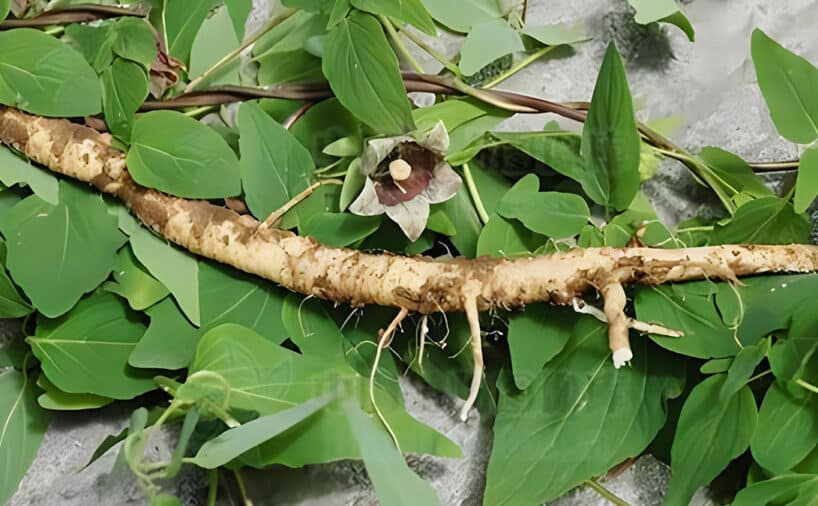There are 5 herbs in Wenxin Keli formula:Radix codonopsis,Rhizoma polygonati,Panax Notoginseng, Amber, Spikenard
In this article we will try to find out why Radix codonopsis is used in Wenxin Keli.
Radix Codonopsis, commonly known as Dang Shen(Pinyin), is a frequently used herb in traditional Chinese medicine. It is renowned for its exceptional nutritional value and medicinal properties and is often termed as the “poor man’s ginseng”.
Radix Codonopsis Introduction
In the traditional Chinese medicine system, Radix Codonopsis is believed to have a sweet and neutral nature. It is associated with the meridians of the lungs and spleen, denoting its primary organ targets within the body. This herb is found to play a crucial role in invigorating the spleen and replenishing Qi (energy), consequently aiding digestion and the absorption of nutrients.
Radix Codonopsis researches
In practice, physicians have extensively used Radix Codonopsis to tackle conditions like fatigue, poor appetite, and diarrhea, which are often seen as results of weakened spleen energy in the Chinese medicine perspective. Additionally, this herb is known for its immune-boosting functions and is applied in the treatment of diseases like cold and flu.
Recent research also suggests potential cardiovascular benefits from the use of Codonopsis. Certain bioactive compounds in the plant have been identified that could assist in decreasing blood pressure and preventing heart diseases. Besides, it’s been used traditionally in the adjunctive treatment of type 2 diabetes because it helps in blood glucose regulation.
Furthermore, Radix Codonopsis is prominent in aiding the recovery of those suffering from anemia, due to its ability to promote the production of red blood cells and enhance the body’s oxygen-carrying capability. This herb is also used in treating persistent coughs and shortness of breath – symptoms linked to lung weakness in Chinese medicine.
Radix codonopsis has several potential benefits for cardiovascular health including:
- Improving Heart Function: Some studies suggest that Radix Codonopsis may help improve heart function. It appears to have a protective effect on the heart, which could potentially reduce the risk of heart disease.
- Regulating Blood Pressure: Radix Codonopsis is known to help in regulating blood pressure levels. It has been found to exhibit vasorelaxant properties, meaning it can help relax and widen blood vessels, thereby lowering high blood pressure.
- Preventing Atherosclerosis: Preliminary studies indicate that Radix Codonopsis may prevent the formation of atherosclerotic plaques which are harmful deposits that can build up on the insides of your arteries. These deposits can restrict blood flow and lead to serious cardiovascular complications, such as heart attack or stroke.
- Antioxidant Properties: Radix Codonopsis contains compounds that have antioxidant properties. Antioxidants are known to protect against heart disease by preventing the oxidation of low-density lipoprotein (LDL), often referred to as “bad” cholesterol. Accumulation of oxidized LDL in blood vessels can lead to atherosclerosis.
- Anti-inflammatory Properties: Chronic inflammation is linked to many diseases, including heart disease. Studies show that Radix Codonopsis has anti-inflammatory properties, which could potentially reduce the risk of heart disease.

